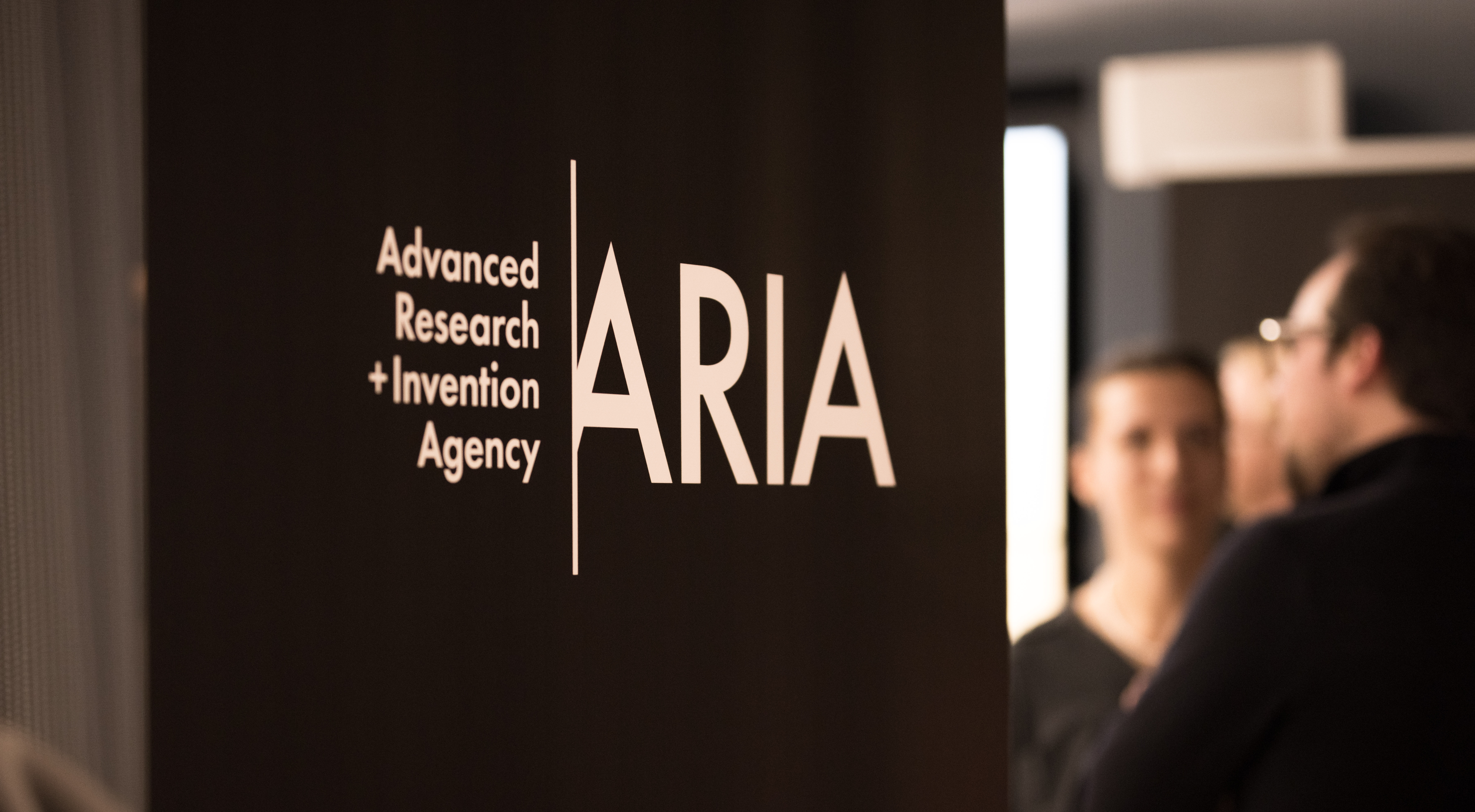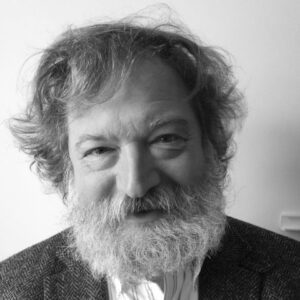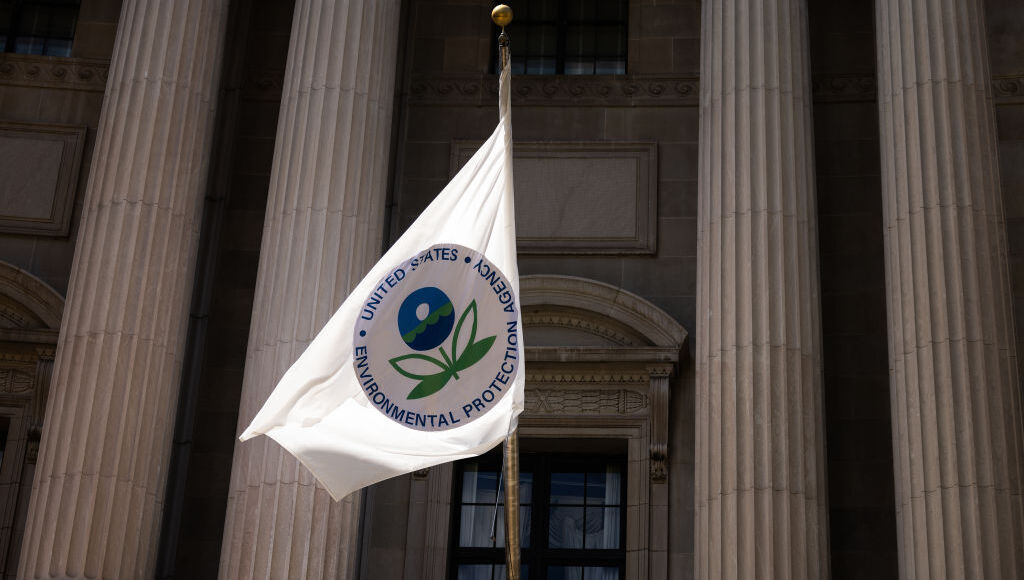News Reaction
UK’s ARIA Announces £45m Funding for 21 “Climate Cooling” Research Projects
The UK agency ARIA’s announcement of funding for 21 new projects provides a major boost to solar geoengineering research, making the UK government the largest funder of solar geoengineering research worldwide. Some experts in the field welcomed the announcement, but others questioned the wisdom of public funding for such controversial ideas.

Photo: Advanced Research + Invention Agency
ARIA, the UK’s Advanced Research and Invention Agency, has announced £45 million ($60 million) of funding for 21 “climate cooling” research projects – from the programme’s total budget of £56.8 million – making it the largest single source of solar geoengineering research funding in the world.
Projects include five “controlled, small-scale outdoor experiments”, looking into thickening Arctic sea ice, cloud brightening in Australia and the UK, and non-toxic, natural materials for stratospheric aerosol injection (SAI) either in the US or the UK.
Regarding the outdoor SAI experiments – an area of research that has proved highly contentious in the past – ARIA writes: “Alongside modelling and indoor laboratory work, ARIA is funding one project to examine how these inert materials age in the stratosphere using a unique balloon platform that will allow tiny samples of these materials to be exposed to the stratosphere and then safely recovered. There will be no release of materials into the stratosphere.”
The largest single project funded – at £9.9 million ($13 million) over 42 months – was for the UK’s Centre for Climate Repair, which will explore “re-thickening” Arctic sea ice. “Researchers will conduct controlled, small-scale experiments in Canada across three winter seasons (2025-26 to 2027-28). The process involves pumping seawater from beneath existing ice and spreading it on top, where the frigid air freezes it quickly, creating thicker ice patches… The goal is to gather essential real-world data to rigorously assess if this intervention warrants further consideration.”
Commenting on the outdoor experiments in general, ARIA wrote: “These experiments will only proceed if ARIA’s stringent governance requirements are met in full. An environmental impact assessment will be performed and made publicly available before any experiment starts, and experiments will have to be developed through engagement with local communities. All funded experiments will be time-bound and limited in size, scale so their effects dissipate within 24 hours or are fully reversible.”
Other projects cover modelling, outdoor monitoring, as well as governance and ethics. The projects extend well beyond the UK, including collaborators on all continents. We offer an abridged list of the projects in the endnotes; more details can be found on ARIA’s website.
News of the impending funding announcement made headlines around the world last month, with more than 170 articles and broadcasts in 15 countries commenting on the UK’s planned investment in this controversial field – even before the specific projects were announced.
With the details of the projects now public, more scrutiny is likely. We asked six experts what this funding announcement means for the field of solar geoengineering in general, the UK’s role in that field, and what some of the consequences might be.

Jim Haywood
Professor of Atmospheric Science
University of Exeter
Scientists agree that limiting global warming to less than the 2°C stipulated by the Paris Agreement to ameliorate dangerous climate change and potential tipping points will be extremely challenging using conventional mitigation. Solar Radiation Modification (SRM) methods to counterbalance some of the projected global warming may play an important role in augmenting greenhouse gas emission reduction efforts. ARIA’s programme of selected activities will facilitate careful, objective, and unbiased assessments of SRM technologies, free from any vested interests.
The UK has an enviable reputation in climate modelling, having arguably the most sophisticated climate modelling capability in the world. Future climate projections using the UK’s climate model suggest that SRM could be effective in ameliorating the impacts of global and regional climate change. However, there are significant knowledge gaps that climate models cannot capture owing to their coarse resolution. For example, how particles generated from a spray of sea-water interact with each other and the impacts of evaporation on the sea-salt plume are unknown and not represented by climate models. These knowledge gaps can only be filled by limited real world experimentation. The transparency of ARIA’s research programme, their funding of the Global South, and their commitment to rigorous moral and ethical standards should be applauded.
Jim has over 30 years of experience in modelling aerosol-climate interactions. He has published on SRM, highlighting the risks involved with non-judicious deployment strategies, findings that are counterbalanced by the amelioration of extreme weather and climate events under judicious SRM strategies.

Catriona McKinnon
Professor of Political Theory
University of Exeter
This is a significant moment for SRM research. ARIA have been keen to stress their focus on ethical and social issues yet have allocated only 4.7% of funding to projects in the “Governance and Ethics” domain. Moreover, these projects appear to be heavily skewed towards engagement, expert elicitation, and communication. These things matter, but without research to answer more fundamental ethical and political questions raised by SRM – for example, related to justice, security, and law – there is a real risk of sleepwalking into lock-in of irresponsible SRM. We should not proceed as if these fundamental ethical questions are settled or easy – they require a critical lens that should precede, and then inform, public and expert engagement. I am worried that the ARIA portfolio misses this.
Catriona McKinnon is a political philosopher working on environmental and climate justice, intergenerational ethics, and geoengineering. Her research in these areas adopts a broadly liberal approach which reflects her other research interests in contemporary liberal political philosophy.

Mike Hulme
Professor of Human Geography
University of Cambridge
£57m is a huge amount of taxpayers’ money to be spent on this assortment of speculative technologies intended to manipulate the Earth’s climate. This is because these technologies will always remain unproven in the real world until they are deployed at scale, at which point it will be too late to remedy any harms. Just because such technologies “work” in a model, or at a micro-scale in the lab or in the sky, does not mean they will cool climate safely, without unwanted side-effects, in the real world. There is no way that this research can demonstrate that the technologies are safe, successful, or reversible. The UK Government is leading the world down “the slippery slope” towards eventual dangerous large-scale deployment of solar geoengineering technologies. Climate change is not well framed as a “crisis” or an “emergency” that demands “moonshot” technologies like this; it is not like an approaching asteroid, as allegorized, for example, in the movie “Don’t Look Up”. Climate change will not be arrested, nor its challenges managed, through one-off breakthrough technologies that ARIA has been designed to incubate. This is public money that would be far better invested in enhancing technologies to reduce dependence on fossil fuels or to remove carbon dioxide from the atmosphere.
Mike Hulme is the author of 12 books on climate change including “Climate Change Isn’t Everything: Liberating Climate Politics from Alarmism” (Polity, 2023) and “Can Science Fix Climate Change? A Case Against Climate Engineering” (Polity, 2014). He was the Founding Director of the Tyndall Centre for Climate Change Research in the UK.

Matthew Watson
Professor of Volcanoes and Climate
University of Bristol
SRM research is both complex and controversial. Sadly, it is now also vital as we drift towards uncharted territory in terms of how rapidly our climate is changing. Of course, the science must be transparent and honest, and must be allowed to delimit both the efficacy (or not) of any given technique and the risks (within the context of the risks posed by climate change itself). In that regard, ARIA’s “Future proofing the climate” programme is a significant step. It supports governance, modelling, monitoring, and small-scale outdoor experiments – the most complete (and expensive) programme anywhere in the world to date. The programme will push the UK to the forefront of SRM research globally and will open up the debate about SRM. There is opposition, particularly to outdoor experiments at large scale, but these are modest and cautious. It is clear that careful thought has been given to this part of the programme. Any experiments are limited to very small areas or, in some cases, are contained. It may be that ARIA’s programme opens up the space for further outdoor research, which comes with significant responsibility. There is a clear opportunity for the scientists in the programme to set the tone for these types of experiments.
Members of the Bristol Flight Lab and I have been funded by ARIA to design and build an uncrewed aerial vehicle capable of monitoring volcanic emissions as a proxy for SRM.
Matt Watson’s work involves observing and quantifying hazards from volcanoes, with a specific focus on emissions to the atmosphere. He uses satellite images and other remote sources, such as drones, to predict the movement of volcanic eruptions and ash clouds.

Raymond Pierrehumbert
Professor of Planetary Physics
University of Oxford
First and foremost, the ARIA “climate cooling” projects announced represent a dangerous crossing of a red line, in that they fund outdoor field trials launched in the absence of any national or international governance to restrict what is actually acceptable. Worse, the field projects funded (as well as many of the other projects) are the most dangerous possible kinds, in that they are aimed at engineering means for deployment of SRM, which makes deployment by unscrupulous actors more likely, but do not address any of the fundamental questions about adverse impacts of deployment. That the generally respected UK government is funding these projects will open the door to governments worldwide to pile on funding for developing disruptive SRM technology, and many of these governments may be even less judicious than ARIA in what they fund and what levels of self-imposed governance they require. The inexperience of the ARIA staff in climate physics also shows in what they have funded, and the rationale they have provided for the programme. For example, the Guardian reports one of the stated objectives of SRM as buying time to tackle the burning of fossil fuels, whereas temporary cooling does nothing of the sort, since carbon dioxide, once emitted, sustains global heating for millennia.
Raymond T. Pierrehumbert is the Professor of Planetary Physics at the University of Oxford. His work embraces both theoretical fluid dynamics and physics of planetary climate, with the latter including work on global change, deep-time Earth paleoclimate, climate of Solar System planets and climate of exoplanets.

Daniele Visioni
Assistant Professor of Earth and Atmospheric Science
Cornell University
The best way for a society to make good decisions about complex topics is through open discussions, civic engagement, and robust science. The ARIA program is providing researchers with the opportunity to better understand feasibility, risks, and opportunities of different approaches for potentially cooling the Earth, and perhaps help reduce our exposure to future climate risks – and to do so in a responsible way by grounding the whole process in a robust governance framework. The research ARIA is facilitating worldwide will greatly contribute to more meaningful conversations and increased collaboration.
Most of the funded research is about expanding our understanding of potential outcomes through modeling, observation, and engagement. Yes, there are some outdoor scientific experiments. An outdoor scientific experiment (as long as it’s environmentally safe) is not materially different from a modeling or cloud chamber experiment, especially if its projected outcome is to enhance confidence in modeling tools.
In recent years, the US National Academies, the EU Scientific Advisory Board, the World Climate Research Program, and many others have highlighted the need to expand research, with care, in order to make better scientifically grounded decisions on this very complex topic. Time to start.
Our group at Cornell University will work on three different projects funded by ARIA, two of them in collaboration with other groups.
Daniele Visioni is a climate scientist with expertise in the behaviour of stratospheric aerosols and how they interact with atmospheric chemistry and the climate. He is currently an Assistant Professor at Cornell University in the Department of Earth and Atmospheric Science and a Cornell Atkinson Faculty Fellow.
The views expressed by Perspective writers and News Reaction contributors are their own and are not necessarily endorsed by SRM360. We aim to present ideas from diverse viewpoints in these pieces to further support informed discussion of SRM (solar geoengineering).
Endnotes
An abridged list of the “climate cooling” projects funded by ARIA:
Governance and Ethics
- Strategic Foresight on Climate and Geopolitics: Toward governance of earth cooling approaches – Matthias Honegger, Centre for Future Generations, £1.25m over 15 months
- How to speak about climate cooling? Co-creating an engagement toolkit in the Arctic and the UK – Ine Steenmans + Chloe Colomer, University College London | Cody Skahan, University of Oxford | Albert van Wijngaarden, University of Cambridge, £360k over 45 months
- Evidence-based Assessments to Guide Perceptions, Governance, and Ethical Frameworks for South Asia: Comparing Marine Cloud Brightening strategies vis-à-vis carbon dioxide removal and mitigation efforts – Athar Hussain, COMSATS University, £574k over 3 years
- PULSE Project: Public Understanding, Leadership, and Social Ethics in the governance of earth cooling technologies in communities impacted by volcanic activity in the Philippine context – Lorena Sabino, University of the Philippines Los Baños, College of Forestry and Natural Resources, £135k over 2 years
- Ethics and Governance of Earth Cooling Research: from concepts to implementation – Ignacio Mastroleo, National Scientific and Technical Research Council (CONICET), £453k over 2 years
Modelling
- GRID-CC: Global to Local impacts of Approaches for Cooling the Earth (GLACE) – Andy Parker, The Degrees Initiative, £2m over 3 years
- Ecological Impact Assessment of Earth Cooling Experiments in the Arctic (Eco-ICE) – Amanda Burson, British Antarctic Survey, £4.8m over 4 years
- Investigating the Impacts of Earth Cooling Approaches on the Variability and Wet-Dry Spell Dynamics of the West African Monsoon – Amadou Coulibaly, Institut Polytechnique Rural de Formation et de Recherche Appliquée (IPR-IFRA), £257k over 3 years
- Space Reflector Baseline Survey – Morgan Goodwin, Planetary Sunshade Foundation, £400k over 15 months
- Towards Robust and Unbiased validation of SAI Simulations (TRUSS) – Heri Kuswanto, Institut Teknologi Sepuluh Nopember, Indonesia, £345k over 3 years
- Simulating the effects of earth cooling approaches on the Dynamics and Thermodynamics of Monsoon and Precipitation Extremes – Byju Pookkandy, The Energy and Resources Institute, £140k over 2 years
- Defining the Minimum Scale of an SAI Test: A fundamental first step towards an outdoor experiment – Doug McMartin, Cornell University, £445k over 2 years
Outdoor monitoring
- De-risking cirrus modification – Sebastian Eastham, Imperial College London, £3.6m over 36 months
- Ice-Nucleating Particles in the Upper Troposphere: Advancing Cirrus Control and Experimental Science Strength “INPUT:ACCESS” – Thomas Whale, University of Leeds, £1.3m over 36 months
- StratoGuard – Global Monitoring of Climate Engineering using Micro High-Altitude Balloons – Steve Tate, Voltitude, £600k over 36 months
- Monitoring Aerosol Climate Engineering (MACE) – Matt Watson, University of Bristol, £4.3m over 48 months
Controlled, small-scale outdoor experiments
- Re-Thickening Arctic Sea Ice (RASi) – Shaun Fitzgerald, Centre for Climate Repair, £9.9m over 42 months
- Marine Cloud Brightening in a Complex World – Daniel Harrison, Southern Cross University, £1m (potentially rising to £5m with matched funding) over 5 years
- A REsponsible innovation Framework for assessing noveL spray tEChnology research To examine local albedo changes from marine brightening and its multi-scale impacts (REFLECT) – Hugh Coe, University of Manchester, £6.1m over 3 years (initial phase)
- BrightSpark – Cloud brightening with electric charge – Giles Harrison, University of Reading, £2m over 36 months
- Natural Materials for Stratospheric Aerosol Injection – Hugh Hunt, University of Cambridge, £5.5m over 36 months



